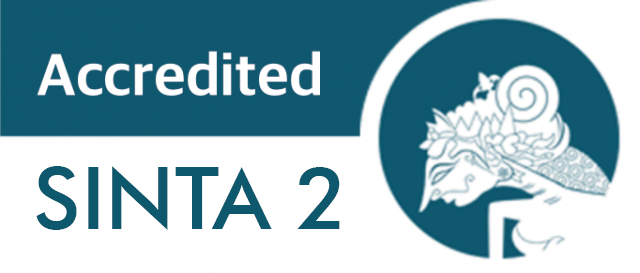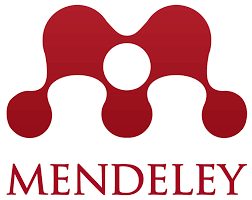Integrating Islamic Values in Online Learning: A Comparative Study of Western and Islamic Education Philosophies
DOI:
https://doi.org/10.15408/tjems.v11i1.40392Abstract
Abstract
The aim of this research is to examine the application of Islamic values in online learning and compare the principles of online learning from the perspectives of Western Education Theory and Islamic Education Philosophy. This qualitative research employs a literature review methodology. The findings indicate that integrating Islamic values into online learning is essential without compromising these values. The research contrasts practical online learning principles as viewed by Western educational theories and classical Islamic scholarship. A significant difference identified is that Islamic education incorporates worship values, whereas Western educational philosophy focuses solely on the humanitarian process without the worship aspect.
Abstrak
Penelitian ini bertujuan untuk mengkaji penerapan nilai-nilai Islam dalam pembelajaran daring dan membandingkan prinsip-prinsip pembelajaran daring dari perspektif Teori Pendidikan Barat dan Filosofi Pendidikan Islam. Penelitian kualitatif ini menggunakan metodologi tinjauan literatur. Temuan menunjukkan bahwa mengintegrasikan nilai-nilai Islam dalam pembelajaran daring adalah penting tanpa mengkompromikan nilai-nilai tersebut. Penelitian ini membandingkan prinsip-prinsip praktis pembelajaran daring menurut teori pendidikan Barat dan karya-karya cendekiawan Islam klasik. Perbedaan signifikan yang teridentifikasi adalah bahwa pendidikan Islam mengandung nilai ibadah, sedangkan filosofi pendidikan Barat hanya berfokus pada proses kemanusiaan tanpa aspek ibadah.
How to Cite: Afif, N., Aziz, A., Mukhtarom, A., Mubin, F., & Lubis, M.R. (2024). Integrating Islamic Values in Online Learning: A Comparative Study of Western and Islamic Education Philosophies. TARBIYA: Journal of Education in Muslim Society, 11(1), 27-36. doi:10.15408/tjems.v11i1.40392.
References
Adiwijaya, H., Suarsini, E., & Lukiati, B. (2016). Penerapan pembelajaran reciprocal teaching berbantuan peta konsep untuk meningkatkan kemampuan berpikir kritis siswa pada pembelajaran biologi. Jurnal Pendidikan: Teori, Penelitian, dan Pengembangan, 1(12), 2379-2387. https://doi.org/10.17977/jptpp.v1i12.8359
Ali, M. D. (2018). Pendidikan Agama Islam. RajaGrafindo Persada.
Al-Zarnuji, Burhanuddin. Al-Risalah al-Ta’lim al-Muta’allim. Bairut: Dar Ihya’ al-Kutub al-Arabiyyah, n.d.
Aminuddin Hassan, N., Jamaludin, N. S., Sulaiman, T., & Baki, R. (2010). Western and Eastern educational philosophies. Paper presented at the Philosophy of Education Society of Australasia Conference. Retrieved from https://pesa.org.au/images/papers/2010-papers/pesa-2010-paper-06.pdf
Arar, K., Sawalhi, R., & Yilmaz, M. (2022). The Research on Islamic-Based Educational Leadership since 1990: An International Review of Empirical Evidence and a Future Research Agenda. Religions, 13(1), 42. https://doi.org/10.3390/rel13010042
Ardiansyah, A., Al-Anshori, T., Zakaria, Z., & Cahyanto, B. (2022). Prinsip penilaian pembelajaran online: Tinjauan pustaka antara teori pendidikan Barat dan teori pendidikan Islam. Jurnal Pendidikan Agama Islam, 19(1), Juni 2022. https://doi.org/10.14421/jpai.2022.191-02
Astuti, L., Wihardi, Y., & Rochintaniawati, D. (2020). The development of web-based learning using interactive media for science learning on levers in human body topic.
Bahri, S., & Arafah, N. (2020). Analisis manajemen SDM dalam mengembangkan strategi pembelajaran di era new normal. Tafkir: Interdisciplinary Journal of Islamic Education, 1(1), 20–40. https://doi.org/10.31538/tijie.v1i1.2
Chia Mun Onn. (2009). Perbedaan utama antara filosofi timur dan barat sebagai dasar pendidikan orang dewasa – Pengalaman Singapura. Diakses pada 3 Oktober 2023, dari Asosiasi Eropa untuk Pendidikan Orang Dewasa. http://www.eaea.org/index.php
Dewi, W. A. F. (2020). Dampak Covid-19 terhadap implementasi pembelajaran daring di sekolah dasar. Edukatif: Jurnal Ilmu Pendidikan, 2(1), 55-61. https://doi.org/10.31004/edukatif.v2i1.89
Fauzi, I., & Sastra Khusuma, I. H. (2020). Teachers’ elementary school in online learning of Covid-19 pandemic conditions. Jurnal Iqra’: Kajian Ilmu Pendidikan, 5(1), 58-70. https://doi.org/10.25217/ji.v5i1.914
Hatta, P., Aristyagama, Y. H., Yuana, R. A., & Yuliesetiani, S. (2020). Active learning strategies in synchronous online learning for elementary school students. IJIET (Indonesian Journal of Informatics Education), 4(2), 86. https://doi.org/10.20961/ijiet.v4i2.46019
Hidayat, N. (2021). Komparasi filsafat pendidikan Barat dan pendidikan Islam. Jurnal An-Nur: Kajian Pendidikan dan Ilmu Keislaman, 7(1), Januari-Juni 2021.
Johnson, D. W., Johnson, R. T., & Smith, K. A. (2014). Cooperative learning: Improving university instruction by basing practice on validated theory. Journal on Excellence in College Teaching, 25(3-4), 85-118. Retrieved from https://eric.ed.gov/?id=EJ1041374
Kamelia, M., Fadli, M. B., & Irdayu, N. F. (2022). The concept of education in the West and Islam. The Progress: Journal of Language and Ethnicity, 1(2), 25-39.
Kusuma, S. F., Sukya, F., & Heriadi, A. (2021). Pendekatan Baru untuk Merepresentasi Informasi di Bidang Pendidikan Menggunakan Kombinasi Ontologi. JEPIN (Jurnal Edukasi dan Penelitian Informatika), 7(2). https://doi.org/10.26418/jp.v7i2.46978
Lubis, A. H., & Dasopang, M. D. (2020). Pengembangan buku cerita bergambar berbasis augmented reality untuk mengakomodasi generasi Z. Jurnal Pendidikan: Teori, Penelitian, dan Pengembangan, 5(6), 780-791.
Marvavilla, A., & Suparlan. (2018). Model integrasi nilai Islam dalam pembelajaran sains. Jurnal Humanika, 18(1). https://doi.org/10.21831/hum.v18i1.23129
Nata, A. (2018). Pendidikan Islam di era milenial. Conciencia, 18(1), 10-28.
Nurdiyansyah, N. M., & Hudriiyah, H. (2021). Policy and implementation of education management based on madrasah. Al-Tanzim: Jurnal Manajemen Pendidikan Islam, 5(1), 14-27.
Oke, A., & Fernandes, F. A. (2020). Innovations in Teaching and Learning: Exploring the Perceptions of the Education Sector on the 4th Industrial Revolution (4IR). Journal of Open Innovation: Technology, Market, and Complexity, 6(2), 31. https://doi.org/10.3390/joitmc6020031
Ratnanenci, C., Hudaidah (2021). Korelasi Dampak Covid-19 Dengan Era Society 5.0 di Bidang Pendidikan. JDMP (Jurnal Dinamika Manajemen Pendidikan), 6(1). https://doi.org/10.26740/jdmp.v6n1.p1-6
Ryan, R. M. et Deci, E. L. (2017). Self-determination theory. Basic psychological needs in motivation, development and wellness. New York, NY : Guilford Press
Sadikin, A. ., & Hamidah, A. (2020). Pembelajaran Daring di Tengah Wabah Covid-19: (Online Learning in the Middle of the Covid-19 Pandemic). BIODIK, 6(2), 214-224. https://doi.org/10.22437/bio.v6i2.9759
Saputra, H. D., Nasrun, N., & Wakhinuddin, W. (2018). Development of web-based learning media in vocational secondary school. VOLT: Jurnal Ilmiah Pendidikan Teknik Elektro, 3(1), 37. https://doi.org/10.30870/volt.v3i1.2975
Schunk, D. H. (2012). Learning theories: An educational perspective (6th ed.). Pearson.
Smith, M. K., Jones, F. H., Gilbert, S. L., & Wieman, C. E. (2013). The Classroom Observation Protocol for Undergraduate STEM (COPUS): a new instrument to characterize university STEM classroom practices. CBE life sciences education, 12(4), 618–627. https://doi.org/10.1187/cbe.13-08-0154
Sugiyono. (2018). Metode Penelitian Kuantitatif, Kualitatif, dan R & D (10th ed.). Bandung: Alfabeta.
Syakhrani, A. W. (2020). The balance concepts of education based on Islam perspective. IJGIE (International Journal of Graduate of Islamic Education), 1(2), 84-95.
Yundarini, N. K. S., Sudana, D. N., & Astawan, I. G. (2020). Assessment instruments of social attitudes and social studies learning outcomes for class V SD on the theme of lingkungan sekitar kita. Journal of Education Research and Evaluation, 4(3), 288. https://doi.org/10.23887/jere.v4i3.27486
Zamhari, M., & Masamah, U. (2017). Relevansi metode pembentukan pendidikan karakter dalam kitab Ta’lim Al-Muta’allim terhadap dunia pendidikan modern. Edukasia: Jurnal Penelitian Pendidikan Islam, 11(2), 421. https://doi.org/10.21043/edukasia.v11i2.1724.











